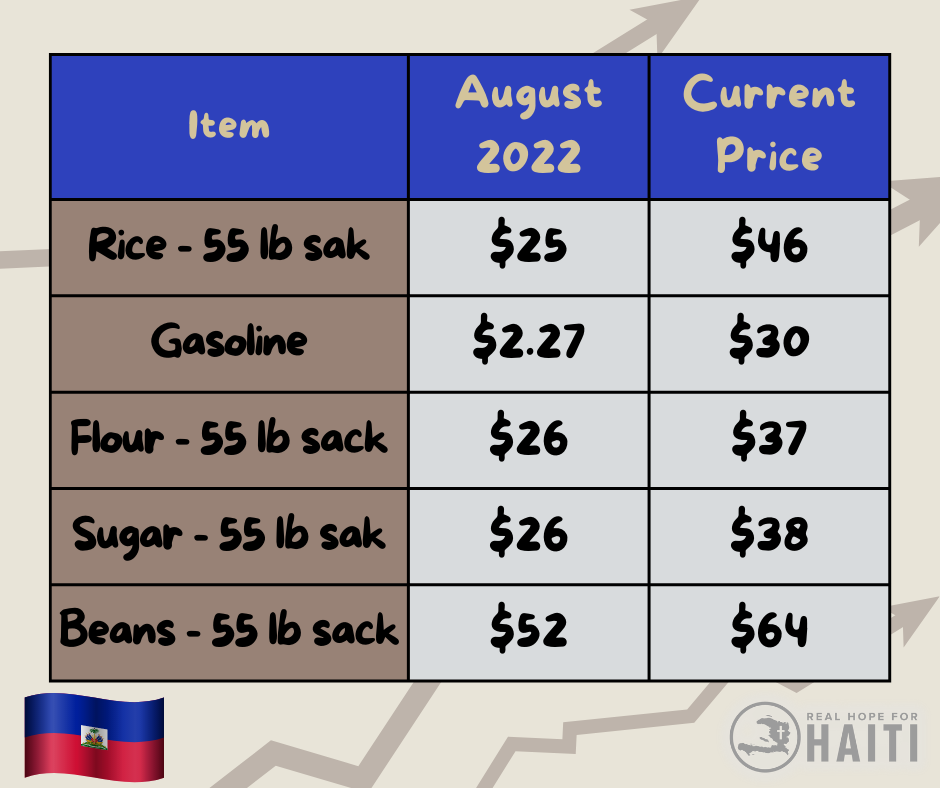Due to a lack of fuel, food prices were already rising. Now that access to Port-au-Prince is cut off, the lack of supply and high demand are pushing prices even higher. Some foods we cannot find. Our staff is working tirelessly to find solutions to ensure we can provide for those acutely malnourished children in our care. It seems wise to prepare for a possible influx of children needing intervention as well. Unfortunately, August saw our first month since 2017 where over 50% of our patients under 5 years old presented with malnutrition (346 out of 646). The spiraling crisis intensified these numbers in September an additional 10% to 64%, our worst numbers since 2014 (281 out of 442). The patient numbers decreased despite the need increasing because unsafe roads and overpriced transportation prevented patients from traveling to us.
In addition, medika mamba, our primary intervention for severely malnourished children, shut down production in country due to fuel shortages and security concerns. We were well stocked with mamba, (as with fuel, food, medicines) when this current crisis erupted, but our supplies are dwindling as they are being put to good use. Licia, Lori, and others are working hard to come up with alternatives and contingencies to continue to meet the needs of those we serve.
For the majority of Haitians, the margins were already paper thin, so these drastic changes mean perilous challenges for them. For comparison,
These changes are simply unsustainable and unsafe for the families in our community. It is a challenge for RHFH as well.
We require 40 bags of rice per month for our inpatient malnutrition center and our outpatient malnutrition programs. We have not found eggs for sale since late August, and frozen meat is increasingly hard to find. These are primary sources of protein in our menu for the Rescue Center children. The mountains around us are full of small gardens, where people work the soil to sell produce at market. We are pivoting to purchasing more fresh fruits and vegetables to adjust our menus considering the current restraints. We are also making something called AK-1000, which combines corn, beans, and a local grain called pitimi we grind up into a powder and make into a type of nutrient rich porridge. All of these changes are significantly impacting our food budget for the Rescue Center.



